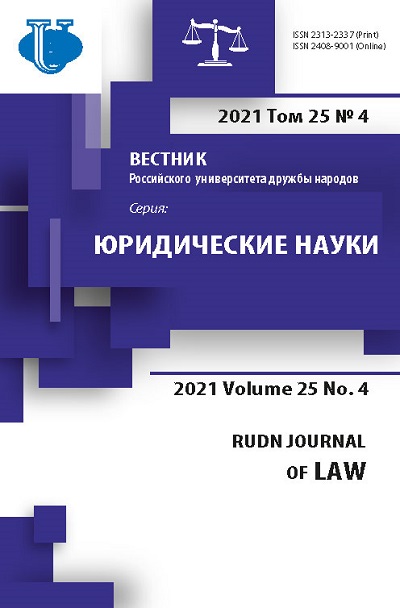Overview of European legislation in the field of creating and functioning of population registers
- Authors: Trofimets I.A.1
-
Affiliations:
- Embassy of Russian Federation in the Kingdom of Spain
- Issue: Vol 25, No 4 (2021)
- Pages: 935-945
- Section: REVIEWS. DISCUSSION FORUMS
- URL: https://journals.rudn.ru/law/article/view/29520
- DOI: https://doi.org/10.22363/2313-2337-2021-25-4-935-945
Cite item
Full Text
Abstract
The article offers an analysis of the European legislation in the field of creation and functioning of information systems for population registration. The author argues that population accounting is conditioned by the need to solve multiple domestic economic, social and demographic issues, as well as global problems of mankind. The information of the UN Statistical and UN Population Commissions on population and housing stock based on the states’ information systems formed the main selection criterion. The conducted research allowed us to conclude that there is no uniform approach in the legal regulation of population registration in EU national territories. Austria, Belgium, Denmark, France, Hungary, Iceland, Netherlands, Norway, Sweden and Finland have established and operate unified registers containing information about the population. Although the information systems differ, the common feature is that the public nature of the register information is emphasized; it is integrated and unified throughout the territory, the terms “central” and “national” are widely used. The author concludes that the study of world experience contributes to the improvement of national legislation and law enforcement in the relevant field of public relations, which is especially relevant in connection with the adoption of Federal Law No. 168-FZ of 08.06.2020 “On the Unified Federal Information Register containing information about the population of the Russian Federation”.
About the authors
Irina A. Trofimets
Embassy of Russian Federation in the Kingdom of Spain
Author for correspondence.
Email: kosareva-khv@mail.ru
SPIN-code: 2552-0632
Candidate of Legal Sciences, Associate Professor
155, Velazquez str., Madrid, 28002, Kingdom of SpainReferences
















